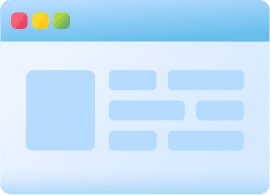
This is your website preview.
Currently it only shows your basic business info. Start adding relevant business details such as description, images and products or services to gain your customers attention by using Boost 360 android app / iOS App / web portal.
Preventive Child Health Care
Disease prevention is an important part of maintaining your child's overall good health. Many preventive strategies are so simple, safe, and effective, allowing you to guard against a variety of potentially serious illnesses, from food-borne diseases to infections caused by ticks and animal bites. Cleaners, Sanitizers & Disinfectants Housecleaning may not be the most enjoyable activity in your day, but a few minutes killing germs can go a long way toward keeping your family healthy. Routine cleaning with detergent or soap and water removes dirt and grime from surfaces (ex: floors, walls, carpet, windows). Sanitizing removes dirt and small amounts of germs. Some items and surfaces are cleaned to remove dirt then sanitized (ex: bathrooms, counters, toys, dishes, silverware). Some items and surfaces require the added step of disinfecting after cleaning to kill germs on a surface (ex: changing tables, sinks, counters, toys). Food-Borne Illnesses Prevention An estimated one in six Americans get sick each year after eating contaminated food. Anyone can get food poisoning, but children are more likely to be affected and have more serious illness.The good news is that most food-borne illness can be prevented by follow these safety guidelines. Cleanliness Food selection Food preparation and serving Germ Prevention Strategies When your child or another family member has a cold or cough, there are extremely important steps in addition to frequent hand washing that can lower the risk of spreading the infection to others. Some experts call these strategies respiratory hygiene, and they can be very effective if followed carefully. For example, to keep your sick child from blowing secretions into the air, where they can land on other people or on toys and other objects: Encourage her to cough or sneeze into a tissue or, if a tissue isn’t available, onto her sleeve. Discourage your child from covering her mouth with her hands while coughing or sneezing because this will leave germs on the hands that can be spread by touching other people or objects. Most often, germs are spread by the hands, not through the air. Throw away tissues immediately after each use, putting them in a nearby wastebasket or other container. Once your child is old enough, teach her how to blow her nose into a tissue. Don’t allow your child to share pacifiers, drinking cups, eating utensils, towels, or toothbrushes whether she is sick. Hand Washing: A Powerful Antidote to Illness How many times have you and your child washed your hands today? You might not have given it much thought. It’s either part of your routine, done frequently without thinking, or maybe you don’t do it much at all. But as your pediatrician may have told you, hand washing may be the single most important act you and your child have for disease prevention. Precautions for International Travel: Information for Parents When you and your child are traveling abroad, you want the experience to be fun, educational, and disease free. Talk to Your Pediatrician Before Your Trip Prevent Bite Wounds Each year, many parents rush their children to the pediatrician’s office or the emergency department after their youngsters have been bitten by animals or other humans. Consider the following statistics: there are about 4.5 million dog bites reported annually in the United States, along with 400,000 cat bites and 250,000 human bites. It is likely that the actual number of bites is much higher. While many of these bites cause only minor injuries, others are much more serious. In many cases, these bites produce infections. This occurs in more than 50% of cat bites and 15% to 20% of dog or human bites. Reducing the Spread of Illness in Child Care Whenever children are together, there is a chance of spreading infections. This is especially true among infants and toddlers who are likely to use their hands to wipe their noses or rub their eyes and then handle toys or touch other children. These children then touch their noses and rub their eyes so the virus goes from the nose or eyes of one child by way of hands or toys to the next child who then rubs his own eyes or nose. And children get sick a lot in the first several years of life as their bodies are building immunity to infections. In many child care facilities, the staff simply cannot care for a sick child due to space or staff limitations, although in others, the child can be kept comfortable and allowed to rest as needed in a separate area of the room where they have already exposed the other children.
We Provide Best Medical Service
Online appointment booking is not available right now.
Appointment Confirmed
Your appointment ID is
| Doctor Name: | |
| Date & Time: | |
| Contact: | +918048030654 |
| Address: | Flat No 2/203, Amogh CHS , Lalbaug , Ganesh Gali Mumbai |
| Appointment fee: | |
| Payment mode: | |
| Join video call at: |
Thanks for choosing us.Your appointment details has been shared on your mobile number as well. Please arrive atleast 10 minutes ahead of the scheduled time.
Success
